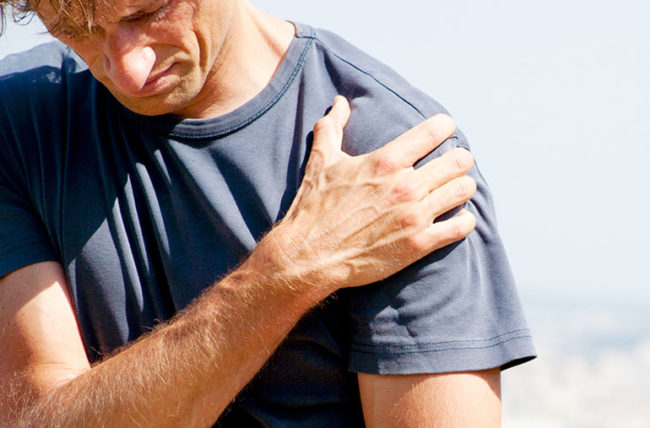After an amount of time, you might be provided weekend passes or be enabled to go on not being watched trips. These benefits offer an incentive for you to continue advancing in your healing and set a fine example for newly sober clients. Taking a while to get ready for rehab can increase your chances of success in the long run.
Insurance coverage information and previous medical records. Alarm clock. Toiletries. Clothing. Laundry soap. Images of loved ones and other items to advise you of home. List of existing medications. List of names, phone numbers, and addresses of close friends and family. Checking out and writing products. Activities to kill time, such as musical instruments, crossword books and puzzles.
Also, you may only want to bring a small quantity of money and schedule a member of the family or pal to send you extra cash if required. Be sure to leave any expensive items in your home, such as jewelry and high-end clothing and purses. Prior to leaving for rehabilitation you might likewise want to look after home, work, and school duties, get more info such as: Arranging to take a leave of absence from school and/or work.
Establishing automated costs payments. Supplying a partner or other household member with account numbers and passwords if they will be overseeing your finances while you are away. Letting friends and family understand that you will be going to treatment (if you feel comfortable). The Americans with Disabilities Act forbids companies from victimizing workers who have gotten involved in drug abuse treatment.
For more info about your rights, please see the Center for Drug abuse Treatment's publication Are You in Healing from Alcohol or Drug Issues? Know Your Rights. 2 Some "housekeeping" pointers to minimize temptation when you return house include: Getting rid of drugs, alcohol, and paraphernalia. Do a comprehensive sweep of your home and make certain to check any secret hiding areas.
Lots of people mistakenly believe that completing a treatment program is completion of recovery. The fact is that recovery is a continuous procedure that takes time and effort. One way to increase the possibility of remaining sober is to have a great aftercare plan. Aftercare planning is among the final actions during treatment.
They can help you discover other treatment suppliers, set up visits, and offer you with information on regional self-help meetings. Having an aftercare plan is necessary due to the fact that it increases the chances of long-lasting recovery and decreases the opportunities of relapse. 3 Each individual's aftercare plan will be different, and a therapist can assist you determine what will be most useful for Mental Health Facility you after treatment.

The Ultimate Guide To How Much Do Lvns Make In A Drug Rehab Center
They are less limiting than rehab programs because locals have the ability to leave the home during the day. how much does outpatient drug rehab cost. Lots of sober living homes have curfews, obligatory drug screening and rules in location to keep locals safe and avoid regression. Recovery conferences are complimentary self-help groups for people http://cashyucy892.cavandoragh.org/getting-the-who-started-journeypure-drug-addiction-and-rehab-to-work dealing with drug, alcohol and other addictions.
Twelve-step groups motivate members to share their battles with addiction, find a sponsor to guide them through the 12 steps and develop a sober support group. Other healing meetings that do not fall under the 12-step category consist of SMART Recovery, Ladies for Sobriety, LifeRing and Secular Organizations for Sobriety. Outpatient treatment is also an option after completing a property program.
Outpatient rehabilitations generally use group and specific treatment for a few hours weekly. Psychotherapy or therapy can be offered by a psychologist, social worker or counselor who specializes in dependency. Therapists normally see customers for 1 to 2 sessions weekly. But the number of sessions can vary depending on your requirements.
Doctors may meet you 1 or more times each month to assess for any adverse effects and determine if medications require to be adjusted. Relapse is a concern for many individuals leaving rehab. It is common to feel bombarded with triggers and combined sensations as you transition from a structured and safe environment back to everyday life.
These include: Finding new pastimes such as sports, reading, composing, and taking a trip. You can likewise think about returning to old pastimes that you may have neglected while utilizing drugs. Developing an assistance network of sober people. Healing conferences provide one way to connect with similar individuals. Starting a new exercise routine.

Consuming a healthy diet plan of protein, vegetables, fruits, and intricate carbs. Prevent excessive sugar, salt, and processed foods. Volunteering your time at a homeless shelter, soup kitchen area, or retirement home. Managing stress by practicing coping abilities that you found out in rehabilitation, such as meditation and deep breathing. Going to a relative or good friend in rehab can be helpful to your liked one's healing.
Many programs likewise offer the opportunity to take part in a joint treatment session during gos to. A treatment session can permit relative to reveal their concerns, resolve troublesome household characteristics and improve communication. Programs differ in their visitation policies. Some programs only allow weekend or night gos to during particular hours.
Not known Facts About What Is A Pa At Drug Rehab
This black-out period limitations contact with friends and family in order to get the client through detox and examine their inspiration for change. Other programs just permit check outs if family members and clients accept participate in household therapy (how to start a drug rehab house). Make certain to ask the treatment center about its policy before you check out.
They also might not be allowed to bring in unsealed drinks, which might have alcohol concealed in them. Visitors and their valuables may be searched prior to the visitor can go into the center. Visitors may not be enabled to go into certain parts of the center. This is particularly true for customers' bed rooms or anywhere that can not be monitored by employee.
The objective is for visitors to get a sense of what the treatment experience is like for their liked ones. Joint therapy sessions may be voluntary or compulsory for visitors. If you are preparing to take part in a treatment session, you might wish to believe about what you would like to state ahead of time.
Checking out a liked one in rehab can cause mixed sensations that can range from enjoyment and joy to worry and anger. Many member of the family and good friends end up being utilized to unfavorable interactions when their liked ones are using alcohol and drugs. Checking out somebody in rehabilitation is the primary step in practicing healthy interaction.
The Neighborhood Support Method (CRA) is a well-studied and effective form of treatment for customers and household members experiencing addiction. The method looks for to improve healthy interaction among household members. 1 Some CRA ideas for enhancing interaction consist of: Deal compassion and understanding. Compassion involves putting yourself in the other individual's shoes.
Concentrating on all of the negative things an individual has done during dependency can increase feelings of guilt and embarassment, which even more triggers a desire to use drugs and alcohol. Most most likely the person knows the wrongs that they have devoted. Instead, focus on your liked one's current development.